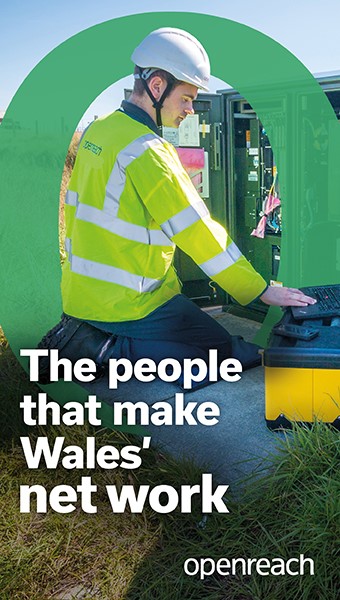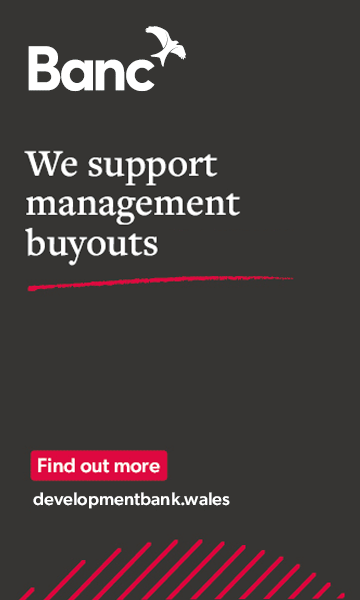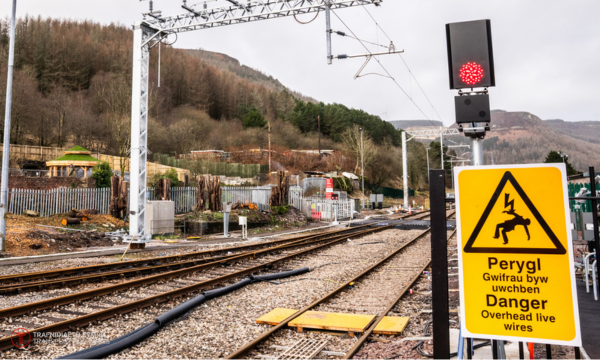Written By:
 Graham Edwards,
Graham Edwards,
Chief Executive,
Wales & West Utilities.
_______________________________________________________________________________________________________________________________
Wales has an industrial heritage to be proud of. To this day manufacturing, construction, and infrastructure continue to play an integral role in economic growth and prosperity, not only for the Welsh nation but across the UK. As the industrial landscape rapidly changes however, it is critical that Wales isn’t left behind and can retain and attract the investment and skills to drive industry forward to compete at the highest levels on the global stage.
Protecting this industrial heartland whilst examining how we can harness the opportunity of net zero is no small feat. We have the opportunity to transform our industrial heartland into a world leading green industry hub.
Nearly 20% of industrial processes in Wales are powered by gas and the commercial sector depends on gas for around 40% of its production as part of an overall and complex mix of energy. This includes beloved British brands – such as Nestle Rowntree and Unilever Bestfoods – that keep Wales competitive in the global market and British supermarkets stocked with affordable products.
Many of these brands require an affordable and high-intensive fuel, such as gas, to achieve the temperatures and pressures required to produce their products. As a result, relying solely on electrification to reduce carbon emissions is an impossible or unsuitable solution to net zero for a large number of these businesses. Without a viable gas replacement, many will be forced to move abroad, close down, or make mass redundancies.
Hydrogen is the obvious solution to this challenge for industry. As a low-carbon gas, it can be transported through existing underground pipes, with minimal disruption to the general public or to our precious landscapes. Hydrogen is an energy solution that takes advantage of available infrastructure while protecting jobs and businesses across Wales – and it is an energy source that already has extensive support from businesses across the region.
This is why at Wales & West Utilities, we are investing £400m to deliver a net zero-ready gas network by 2035, with the ultimate goal of providing energy-intensive industrial customers with the power they need. Our latest Hyline Cymru opens the potential for building the industry of the future by creating a major hydrogen pipeline in South Wales, and through our partnership with Apollo Engineering, we are developing plans to connect North Wales to hydrogen hubs like Hynet.
A number of organisations are matching our ambition on hydrogen and are working to advance its use in the region. Last year, Budweiser Brewing Group announced a £100 million hydrogen project to fuel their production at Magor Brewery in Monmouthshire, the UK’s largest brewery. Likewise Protium Group, a green hydrogen energy services company, are already pioneering hydrogen transportation projects across Wales to support local communities to switch to low carbon buses.
These initiatives are kick starting the hydrogen economy in Wales, but we need more to take full advantage of the opportunities we have in front of us. We need leadership and certainty from the government and a demonstrable long term commitment from policy makers in Wales to enable change at scale and pace.
Whilst the UK government has already made commitments to use hydrogen in clusters to power specific regions, the policy does not fully take into account the 248,000 businesses and enterprises that need gas. According to recent data from the Institution of Gas Engineers and Managers (IGEM), industry is connected to the gas network at over 67,000 points across Great Britain. Most of these businesses lie outside of industrial clusters, meaning that under the government’s current policy, organisations in industry-rich regions such as Bangor and Wrexham could be forced to relocate thousands of miles to meet their energy need. In reality, this will mean businesses will close up, leaving decimated towns in their wake.
Right now, we are at a pivotal moment in transforming Wales’s energy future – and we have an opportunity to speak up for our businesses and industries to ensure they can decarbonise. But only if we act now.
Acting now will enable the delivery of a diverse energy system and guarantee the protection of Welsh jobs and skills.
Acting now will unlock potential to grow the Welsh economy.
And acting now will protect Wales from facing a truly uncertain industrial future.























